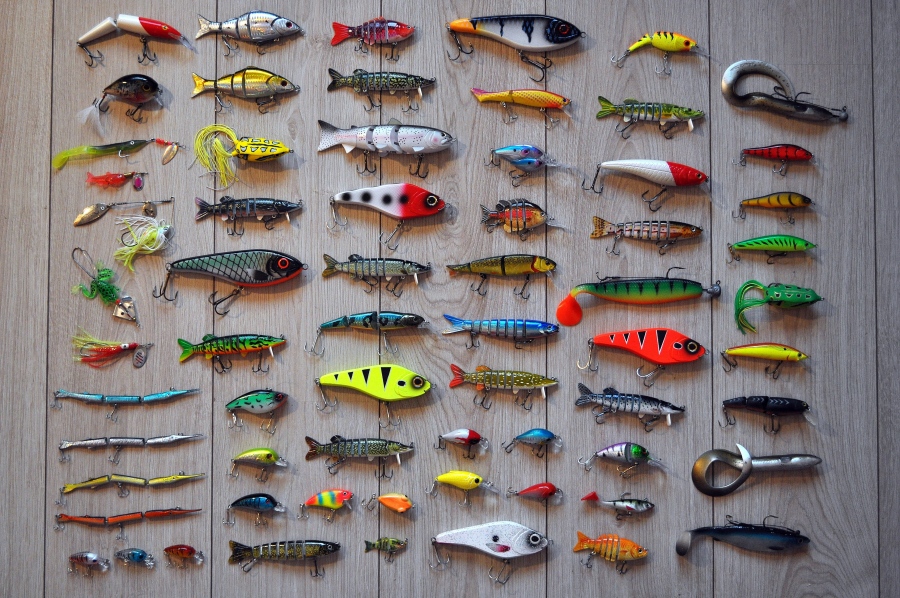All fly anglers want to catch more bass, but there are some that actually consistently catch bass.
It’s obviously easy and tempting to associate the latter with pure luck. However, how far lucky can one angler be?
Think of a guy like Kevin VanDam, he is a pro angler that has earned his fortune (over $5 million) by winning countless Bassmaster tournaments.
Can you associate all of his titles and earnings with luck?
Well, definitely not!
There must be something that differentiates people like Kevin VanDam to a random weekend warrior who is always happy to catch a few bites by luck, right?
Honestly, when it comes to fly fishing, luck isn’t the only thing you need to succeed; in fact, in you are depending on luck to catch some bass, you are simply too naïve to be called a fly fishing angler.
So, instead of blaming luck for not catching enough fishes, you should probably look at your skills and learn the right techniques that may help you to catch more fish without having to depend on luck.
Well, in this blog we will be looking at some common mistakes you may be making when fly fishing for Bass.
(And for a detailed guide: Bass Fishing for Beginners: An ultimate guide to get you started)
Remember Bass is in instinctive and intelligence fish, and while discussing the instincts of bass is out of the scope of this blog, we will be restricting our blog to see common mistakes anglers make while fly fishing for bass. So, let’s get started.
-
Excessive False Casting:
Using excessive false casting is one of the most common mistakes made by many anglers. Remember, when you are using false casting too generously, you are restricting your time with the fly in the water. And its common sense that if you fly isn’t in the water, there ain’t no chance of you to make a catch. I have seen newbies and amateur fly fishing anglers wasting time making five and even up to ten false casts, wasting precious time in something that’s isn’t actually required as they drift through the precious bass territory.
The better way is to cast with a single or double haul.
Retrieving the fly all the way to the boat isn’t necessary during casting; rather doing so only necessitates making too much false casting, leading to a waste of time.
The goal should be covering as much water as possible, targeting all potential areas where the bass may be found including shorelines, ledges, riffles, grass beds, and others. Again, you don’t need to go with excessive false casting, rather depending on the conditions a single or double haul would be enough to get the fly in water – as soon as possible.
Remember, the idea is to keep the fly in the water for as long as possible and cover all the areas, and if you start wasting your time pulling the fly to the boat and re-casting all over again, you will be missing great lengths of precious fishy waters.
-
Using too small flies
Ok, that’s another common mistake that is made by bass fly fishing anglers especially newbies or even experienced anglers who aren’t able to understand the different fly fishing gear needs for trout and bass.
While small flies are great when you are looking to fly fish for trout, it’s not something you can bring when you are looking to work with an instinctive fish like bass. And just because you have been able to score a number of trout catches using that number 4 woolly fly, it’s simply too small when you are looking to catch bass; and I am not even talking about largemouth bass still. Even the smallmouth bass have big enough mouth to gulp down the largest flies from your trout box, just imaging what kind of joke it would be when you are looking to catch largemouth bass.
The best size?
Well, the fly size will vary depending upon the type of bass (smallmouth vs. large mouth). For me, 4’’ to 6’’ flies have been a success to catch these little river monsters. Anything smaller this range is simply too small to even consider worthy, whereas, you can always go for larger size like an 8’’ fly, however, that is mostly sited when you are looking to score a trophy catch like a ten-pounder bass.
So, while you may be tempted to continue with your lucky charm trout flies, remember it won’t work with the bass. As we said above, there are no lucky charms in fly fishing, rather it’s about the ability to adjust and learn the secrets of the game.
-
Using Wrong Gears
Well, flies aren’t the only gears that you need to get right when you are looking to catch these river monsters, rather you need to get the entire fishing equipment right if you are into catching bass like a pro-angler.
Getting into some details, there is no way you would be able to make any catch with your small 5 – 6 wt rod, rather would keep struggling even to place even a medium-size bass bug on the rod (again, we are not even talking about the large bugs). The ideal size would be to choose at least a 7 or 8-wt rod and then reinforcing it with a solid reel to increase your chances of catching the bass.
Remember, the strength of the reel and rod is important for bass fly fishing because you would have to counter the massive drag of this not so little river monster. And while the bass isn’t known for making too lengthy runs, without the right equipment, you would be left hanging in front of the massive drag force of these strong fish.
-
Not Stopping enough
Moving on, another thing that I have often noticed fly fishing anglers doing utterly long is wasting too precious tie drifting along the fishy waters. Remember, bass aren’t found on the surface waters, rather they prefer to hide under the structure and obstacles.
This means that passing by the water and not stopping enough on structural features will minimize your chances to lure bass. Instead, the better option is to anchor out at structures and give bass enough time to get lured to the bait. Ask any pro bass angler and he will tell you that the best way to catch bass is to anchor more and wait for the fish.
-
Spooking the Bass
Spooking isn’t the best way to catch any fish, certainly not the bass. Just as we said above, the bass is an instinctive and aggressive fish that’s highly sensitive towards its environment. Any spooking around its hiding spot, and all your chances of making a catch are gone in thin air.
To minimize the chances of spooking, I prefer carpeting the boat, which minimizes the boat noise. Also, be watchful to not thump the rod against the boat or create any other noise which may surprise the bass.
The key to scoring more with fly fishing for bass is to remain as discreet as possible. And yes, try to keep your nerves and not get too excited before actually making a catch.
-
Loose Line.
Another common mistake made by young fly fishing anglers when catching bass is to have too much slack in the line.
A rod tip kept at the eye level along with clear slacks in the casting line is no short of a nightmare for anglers to load the rod.
When you are looking to catch bass, the best practice is to keep the tip of the rod pointed downwards, this way you will be able to load the rod easily and concentrate on the water surface.
Also, you should use the strongest hook in your set, since bass has thick cartilage lined mouth, in which case any slacks in the line won’t help the cause.
-
Backcast
Last, in line, we have another common mistake prevailing amongst the bass fly fishing anglers – that is their ignorance towards backcast.
I mean ask any fly fishing angler about the importance of backcast and he/she will tell why you need to learn the trade.
The biggest benefit of backcasting is that it will enable you to try your hands around both ends of the boat, which already increases your chances to score a catch. Another important reason to practice backcast is that it helps you to deal with the winds, thereby improving your chances to score a catch even in windy conditions. Thereby, next time around when you are out to fly fishing for bass, make sure you got the backcast skills and practice it.
Take to the water!
Well, there we have it, 7 most common mistakes made by bass fly fishing anglers. If you already haven’t tried fly fishing, I am sure you are going to love the experience and the adrenaline pumping through the body. And if you have already experienced it, I am sure overcoming these mistakes will help you score more catches and achieve more from your fly fishing experience. Just remember, while the bass is a hard and instinctive fish, with the right gears and technique, you can surely catch these river monsters; who knows you even make a trophy catch down the line.
Author Bio
Warda Yasir writes about creativity, technology, business, real estate, education and literature. She’s an emerging writing with the center for fiction. When she isn’t busy freelance writing or editing. She’s at a desk somewhere in Dubai, UAE, toiling away at her own fiction writing. Find her on Twitter and Facebook




